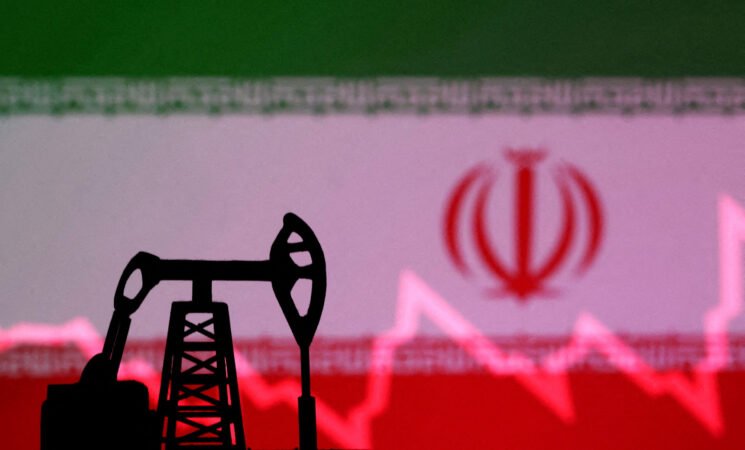9 June 2025, NIICE Commentary 11230
Sonali Devi R
Economic sanctions are commonly utilized foreign policy measures for exercising non-military pressure on states whose actions are considered to be violating international norms. However, its impact is often disproportionately felt by civilians , instead of political leaders. The case of Iran, a continuous target of US led sanctions, highlights how these constraints, while supposed to prevent nuclear proliferation, have rather increased economic suffering, caused a healthcare crisis, and sparked major human rights concerns.
Nuclear Deadlock and Diplomatic Fallout
Iran's nuclear aspirations have been subject to international criticism ever since late in the 1980s. While Tehran argues that its nuclear program is peaceful, the recent discovery of underground enrichment activities and undisclosed facilities, such as those associated with the Amad Plan, has raised worldwide tension. The Joint Comprehensive Plan of Action (JCPOA) of 2015 slowed the Iranian nuclear ambitions as a bargain for sanctions relief. However, the United States' withdrawal from the JCPOA in 2018 undid these improvements, reestablishing tough economic restrictions, including secondary penalties that restrict foreign enterprises for carrying out business with Iran. Instead of curtailing Iran's nuclear operations, these measures have boosted uranium enrichment beyond the JCPOA restrictions, raising skepticism on the efficacy of sanctions in influencing state behaviour.
The Cost to Care
The dire state of Iran's healthcare sector is one of the devastating humanitarian repercussions of these sanctions. The acquisition of medicines has been extremely difficult because of the economic exclusion inflicted on by sanctions, even though proper exemptions for humanitarian goods like medication have been permitted. International banks often hesitate to process even humanitarian operations out of fear of penalties. Supply chains for essential drugs and medical equipment have been knocked off balance by this over-compliance.
Over seventy percent of Iran's healthcare products and thirty percent of its pharmaceutical equipment are imported. This has contributed to a shortage of drugs for rare illnesses like cancer, and epilepsy. Many families struggle to afford essential healthcare due to inflation and the weakening of the Iranian Rial. The difficulties faced by humanitarian groups, particularly with regard to finances, worsen relief efforts by rendering it more challenging for vulnerable individuals to obtain vital medical care. This financial stagnation affects not only existing humanitarian efforts, but also the country's overall capacity to deal with emergencies, such as the COVID-19 pandemic. Regardless of the fact that vaccines and essential medical supplies were technically exempt from sanctions, Iran suffered major setbacks in obtaining them. The humanitarian exemption in theory seems meaningless by its impractical use in reality.
Broken Exemptions
Humanitarian organizations are frequently experiencing operational standstill regardless of structured exclusions. Relief International and the Norwegian Refugee Council, for instance, acknowledge issues related to offering relief since their foreign investors steer clear of decisions concerning Iran in an attempt not to trigger any secondary sanctions. Although medical and humanitarian deliveries are explicitly authorized, this "over-compliance" by financial institutions led to an unofficial blockade. This also has a detrimental effect on patients who require medical attention outside the country. Children from Iran with conditions such as hemophilia, thalassemia, or leukemia are often dependent on imported prescription medications or assistance from abroad. The Iranian Hemophilia Society has disclosed to the public the high chances of mortality resulting from the shortage of clotting drugs, specifically Factor VIII. Similarly, as a result of stalled trade and price hikes, patients with advanced-stage cancer and autoimmune diseases have restricted chances of receiving biologic medication.
While economic sanctions are designed to enforce international law and or protect global security, its unfair expense on civilians raises both legal and ethical constraints. Under sanctions, many Iranians lose access to their fundamental right to health, as recognized by international human rights guidelines. Chronic illnesses remain neglected, hospitals are poorly equipped, and medical professionals burn out due to a lack of assistance.
This presents a pressing question: are sanctions satisfying its political goals, or are they predominantly deployed as an instrument of collective punishment?
Sanctions, Rewritten
The Iranian case shows us the pressing requirement to rethink sanctions, especially their humanitarian exemptions and enforcement mechanisms. Primarily, there must be clear, consistent, and strict prohibitions for humanitarian goods. Furthermore, international coordination mechanisms should be established for the surveillance and promotion of the flow of assistance during sanctions. Additionally, financial institutions must get guarantees and regulations to safeguard genuine humanitarian operations from retribution. Ultimately, diplomatic engagement and international negotiation must consistently lead, not follow failures. The JCPOA, although defective, was an exceptional instance of international diplomacy making headway. Its unraveling ought to serve as a reminder that retaliating isolation is not going to yield lasting remedies.
Conclusion
Economic sanctions, as indicated by the Iranian instance, risk perpetuating suffering for humanity while refusing to change the government's policies. They impose scarcity, constrain access to essential rights, and often promote anti-Western sentiment within the very people they are supposed to aid. If international policy is to remain in alignment with ethical values, sanctions must be carefully revised, centering not just on the pressure, but also on security.
Sonali Devi R is currently pursuing her MA in International Relations at Loyola College, Chennai, India.

